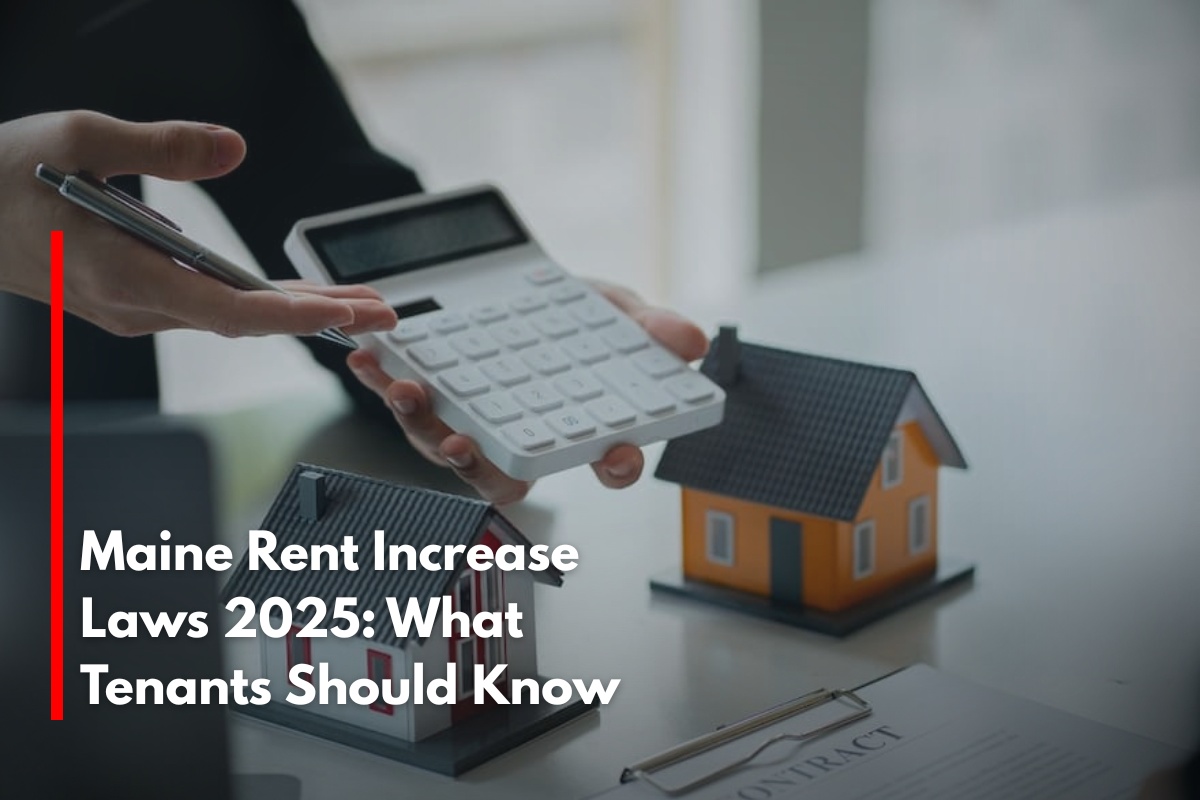If you’re renting in Maine, it’s critical to understand how state and local laws govern rent increases in 2025—especially as housing costs continue to change. Here’s what tenants need to know about the state’s latest protections, requirements, and your rights:
Statewide Rent Increase Rules
Frequency Limits:
Landlords in Maine can only increase rent once every 12 months for the same tenant. This means you won’t face multiple rent hikes in a single year on your current lease.
Notice Requirements:
For any rent increase, landlords must provide advance written notice to tenants.
The notice must specify the new rent amount and the date the increase becomes effective. Oral notices, or notice periods shorter than the statute requires, are not valid.
No Statewide Rent Cap:
Maine does not have a statewide cap on the dollar amount of rent increases (outside of local rent-controlled areas). However, landlords must always provide proper notice and cannot increase rent during a fixed-term lease unless the lease specifically allows for it.
Local Rent Control Ordinances
Some Maine cities—most notably Portland and South Portland—have enacted local rent control laws that further limit rent increases:
If you live in a city with rent control, your landlord must also follow those local rules—so check with your city hall for current, area-specific details.
Tenant Rights & Protections
Just Cause Eviction: Landlords can’t evict you or refuse to renew your lease without a legally recognized reason. If you believe your rent was raised as retaliation or to force you out without cause, you can challenge it.
Retaliatory Increases Prohibited: It is illegal for a landlord to increase rent because you exercised your legal rights as a tenant.
Habitability Protections: A landlord cannot raise rent if your apartment has unresolved safety or health code violations.
How to Respond to a Rent Increase
Check the Notice: Was it given in writing and with proper advance notice? If not, you may be able to dispute the increase.
Verify Compliance: If the increase exceeds local caps or violates once-per-year rules, you can file a complaint with Maine’s consumer protection office or your local housing authority.
Know When to Negotiate: If you receive a notice and are concerned, communicate early with your landlord—sometimes rent negotiations or lease extensions are possible.
Maine’s updated rent increase laws in 2025 strike a balance: providing flexibility for landlords, but giving tenants clear protections, time to plan, and recourse against unfair practices. Always keep your lease, official notices, and correspondence with your landlord in writing for full protection.
Sources
[1] https://www.hemlane.com/resources/maine-rent-control-laws/
[2] https://www.maine.gov/ag/news/article_scams.shtml?id=13153973
[3] https://www.steadily.com/blog/rent-increase-laws-regulations-maine
[4] https://www.ptla.org/rights-maine-renters-paying-rent
[5] https://www.hemlane.com/resources/maine-tenant-landlord-law/











